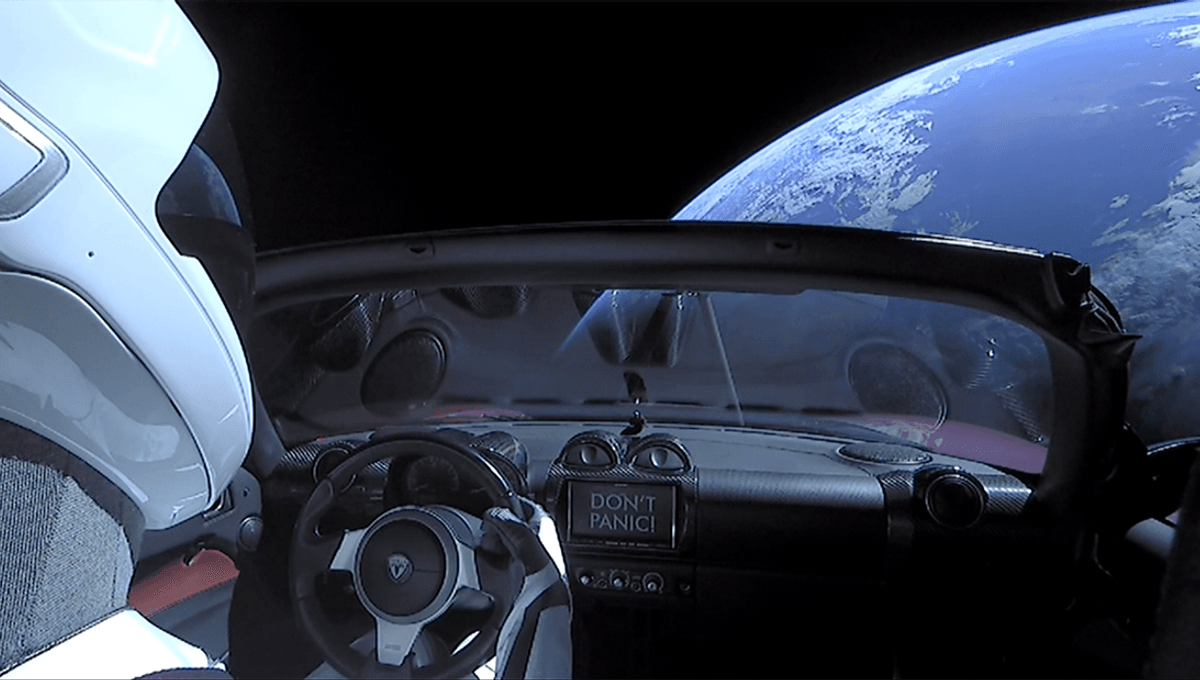
A near-Earth “asteroid” recently spotted by astronomers poring through telescope data has turned out to be Elon Musk’s car.
ADVERTISEMENT GO AD FREE
On January 2, the International Astronomical Union’s Minor Planet Center announced the discovery of a new asteroid. The object was dubbed 2018 CN41 after the year and month when the telescope observations took place. The “asteroid” has an eccentric orbit, which qualified it as a Near-Earth Object (NEO), taking it within the Moon’s orbit at a distance less than 240,000 kilometers (150,000 miles) from Earth.
While still undisputedly an object near Earth, the Minor Planet Center issued a correction the following day after they confirmed it was in fact Elon Musk’s own Tesla Roadster, which he famously launched into space in February 2018, attached to the Falcon Heavy Upper stage booster.
“The designation 2018 CN41, announced in MPEC 2025-A38 on Jan 2, 2025 UT, is being deleted. The object was reported through the identifications pipeline as a 3-nighter linkage found in the isolated tracklet file and more tracklets were linked in the ITF, leading to a small object on a heliocentric NEO orbit,” the Minor Planet Center said in a correction.
“The next day it was pointed out the orbit matches an artificial object 2018-017A, Falcon Heavy Upper stage with the Tesla roadster. The designation 2018 CN41 is being deleted and will be listed as omitted.”
This happens from time to time, with newly spotted objects turning out to be already-known objects. In 2007, for instance, a newly spotted object turned out to be the European Space Agency’s Rosetta spacecraft.
The Tesla Roadster, which Elon Musk drove personally prior to launch, is now on an orbit that crosses the orbit of Mars and Earth.
ADVERTISEMENT GO AD FREE
Keeping an eye on the car isn’t exactly astronomers’ most pressing concern, but a few have tried to calculate the fate of the vehicle, and whether it poses a threat to Earth. In 2018, one paper did just this, finding that it has a reasonable chance of hitting Earth eventually.
Looking at the car’s orbit, and potential close encounters that could adjust its trajectory, the team calculated that the car has roughly a 22 percent probability of hitting Earth, a 12 percent chance of colliding with Venus, and about the same probability of hitting the Sun as hitting Venus. Fortunately for Musk, this will happen on a timescale of millions of years, and is unlikely to affect Tesla stock prices.
The car will make another close approach in 2047 at about 5 million kilometers (3.1 million miles). Beyond 100 years, repeat close encounters with the planets make long-term predictions of the car’s chaotic orbit “impossible”.
Source Link: Near-Earth "Asteroid" Spotted By Astronomers Turns Out To Be Elon Musk's Car